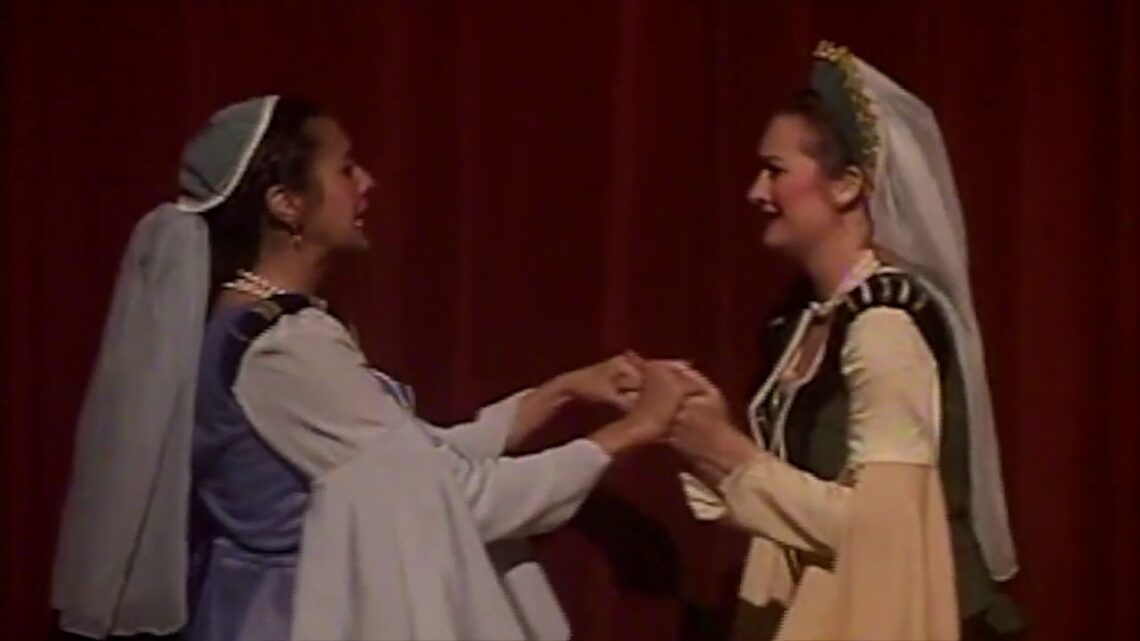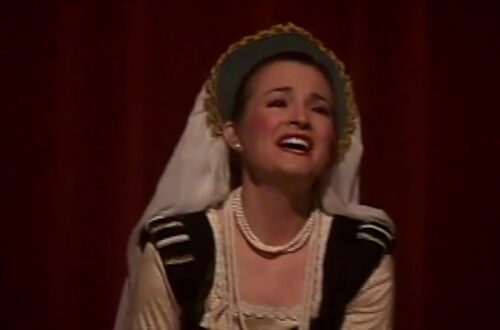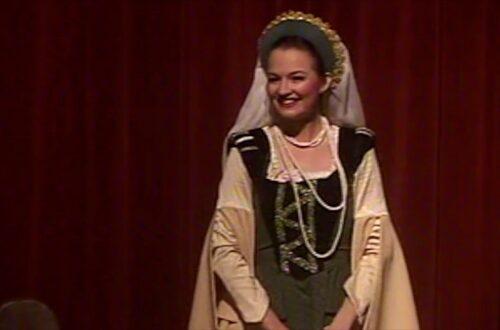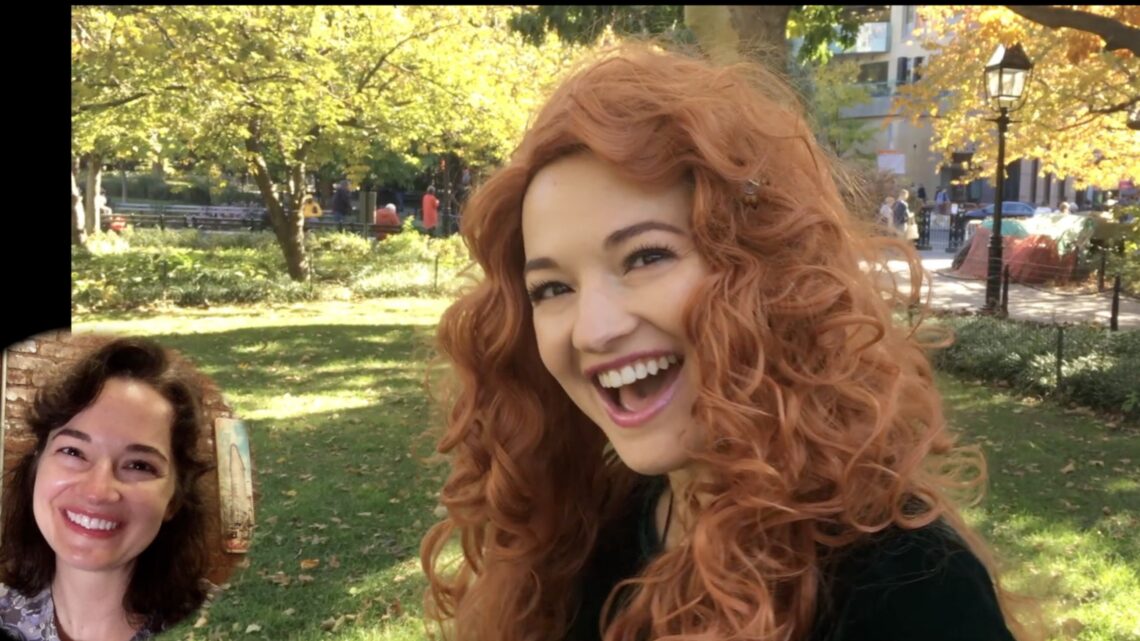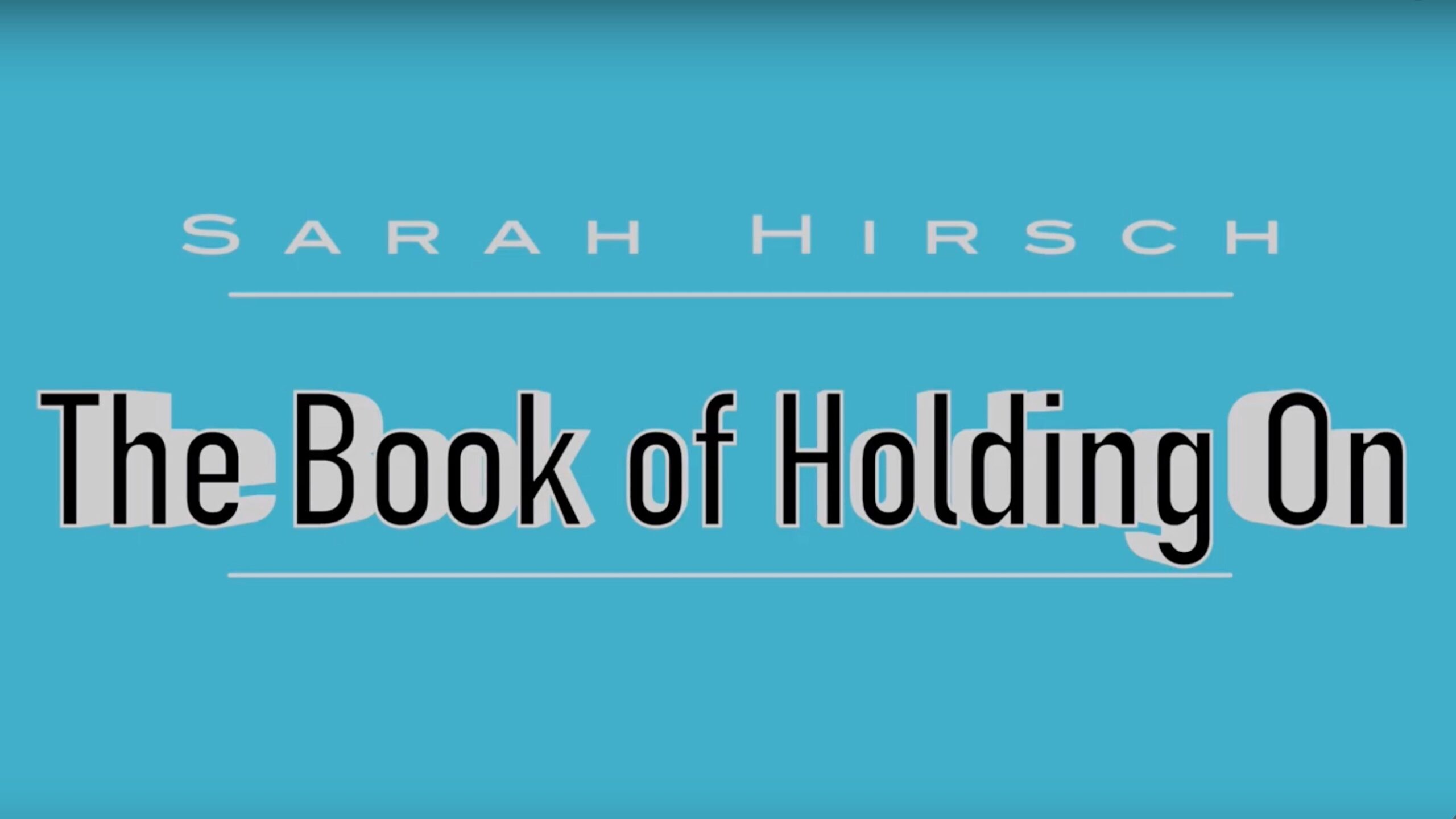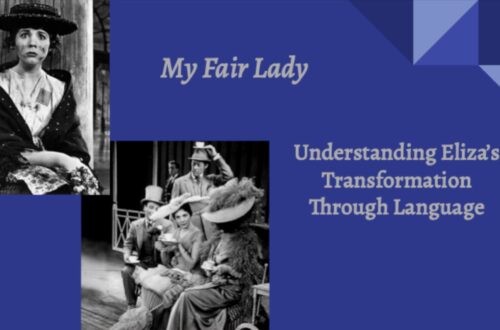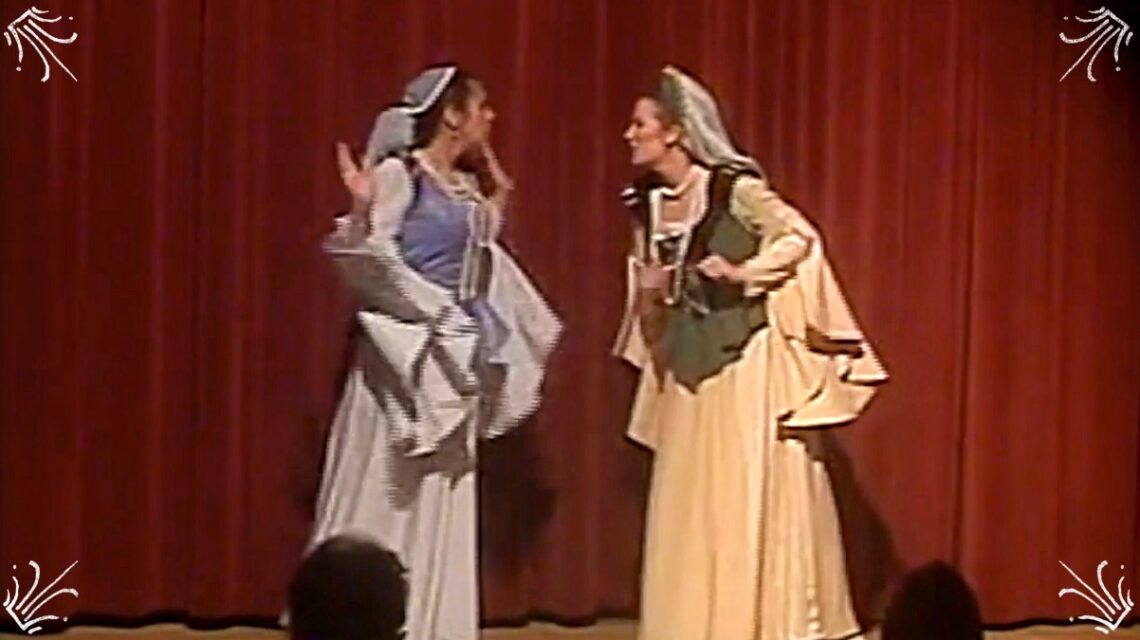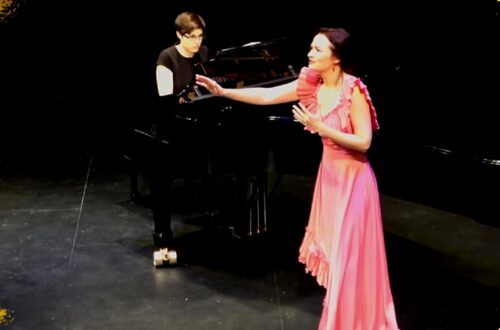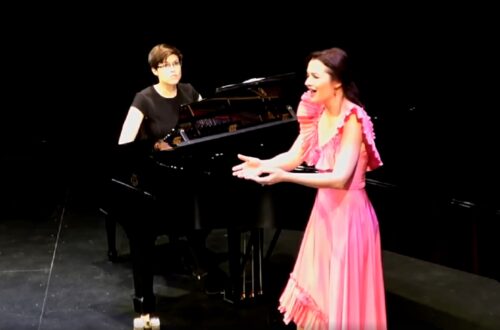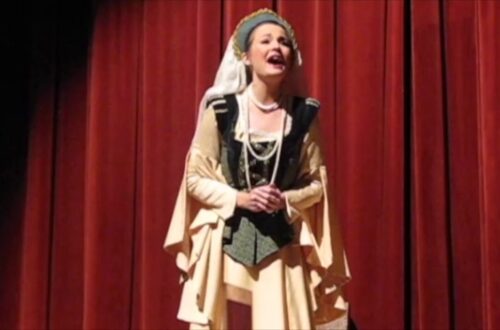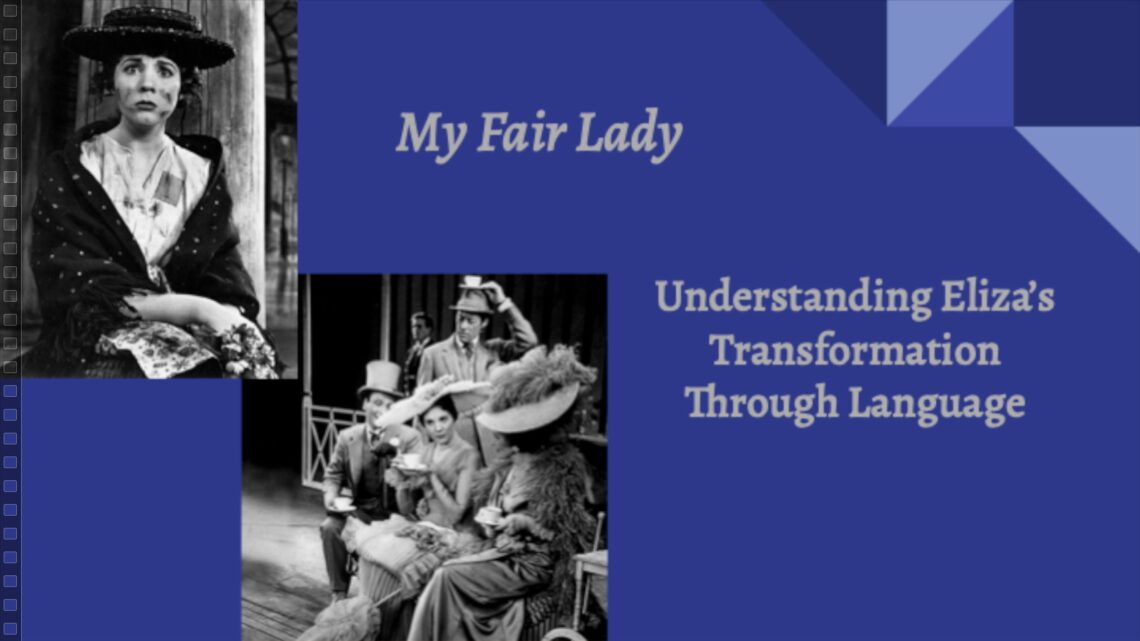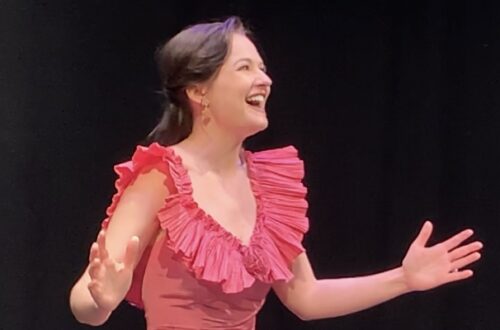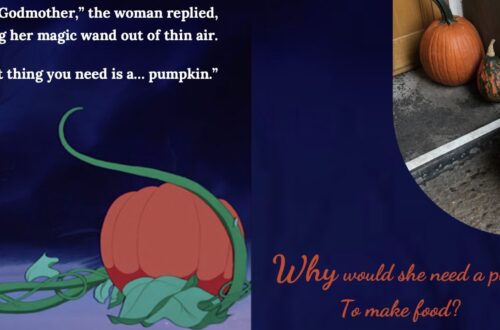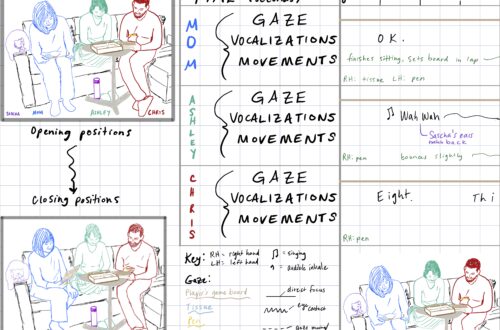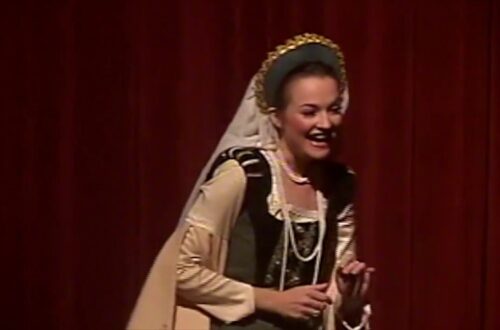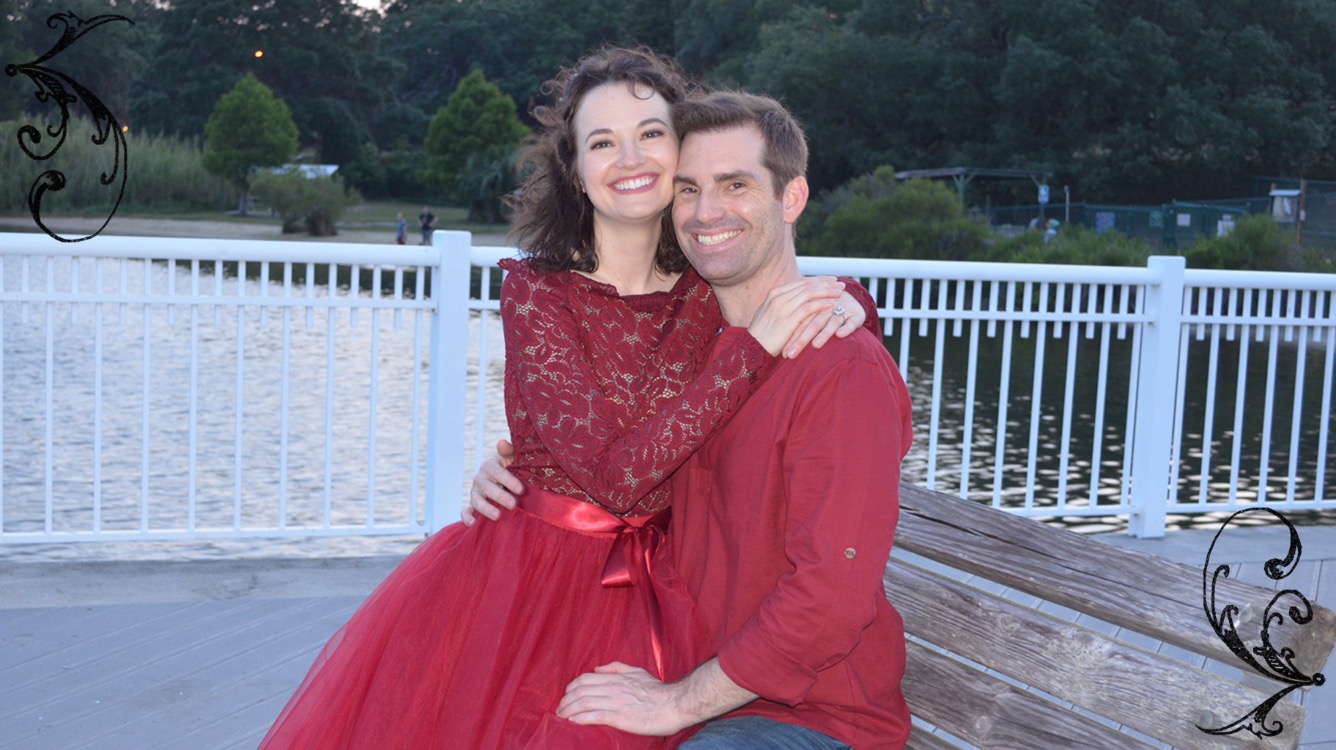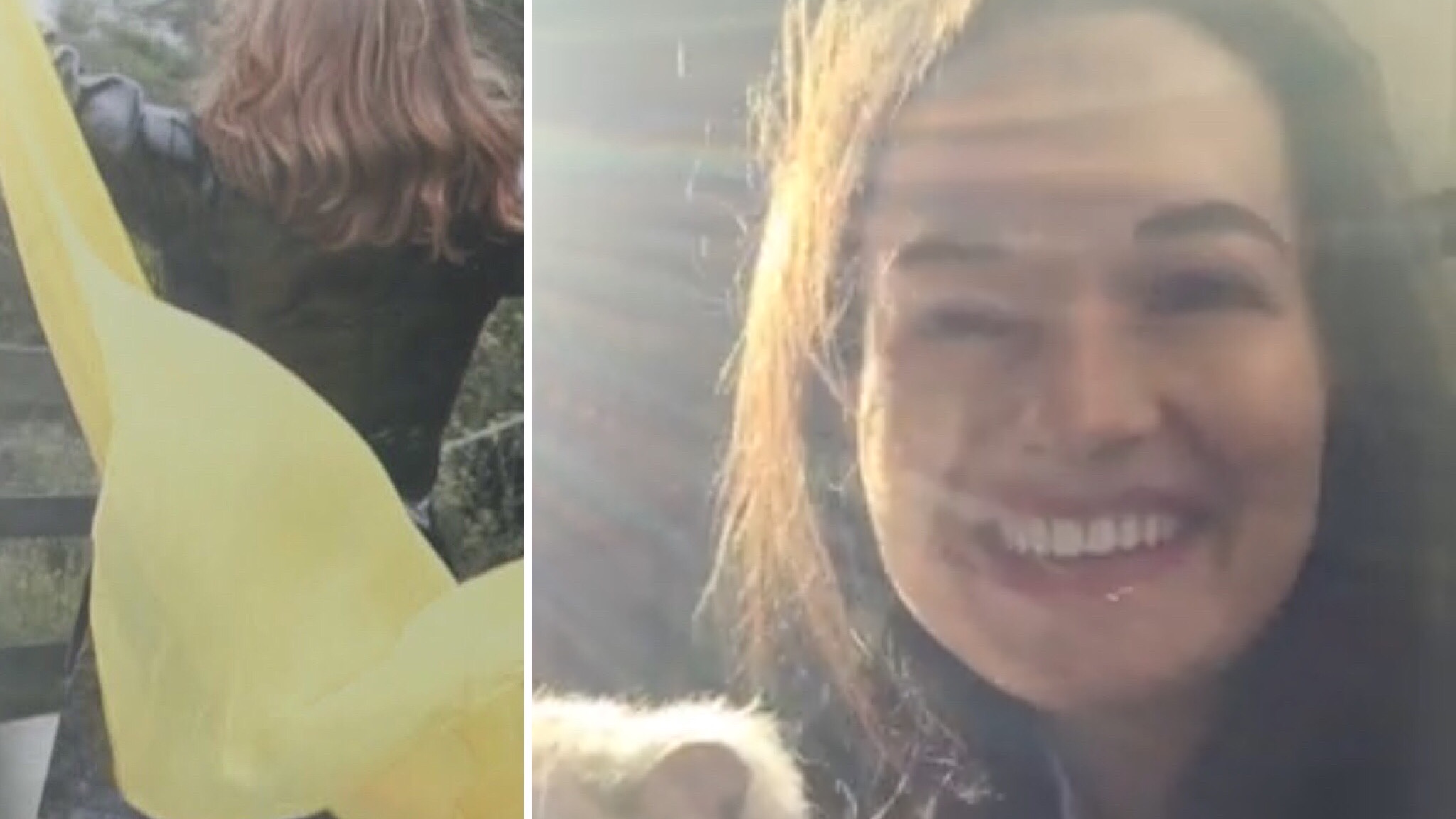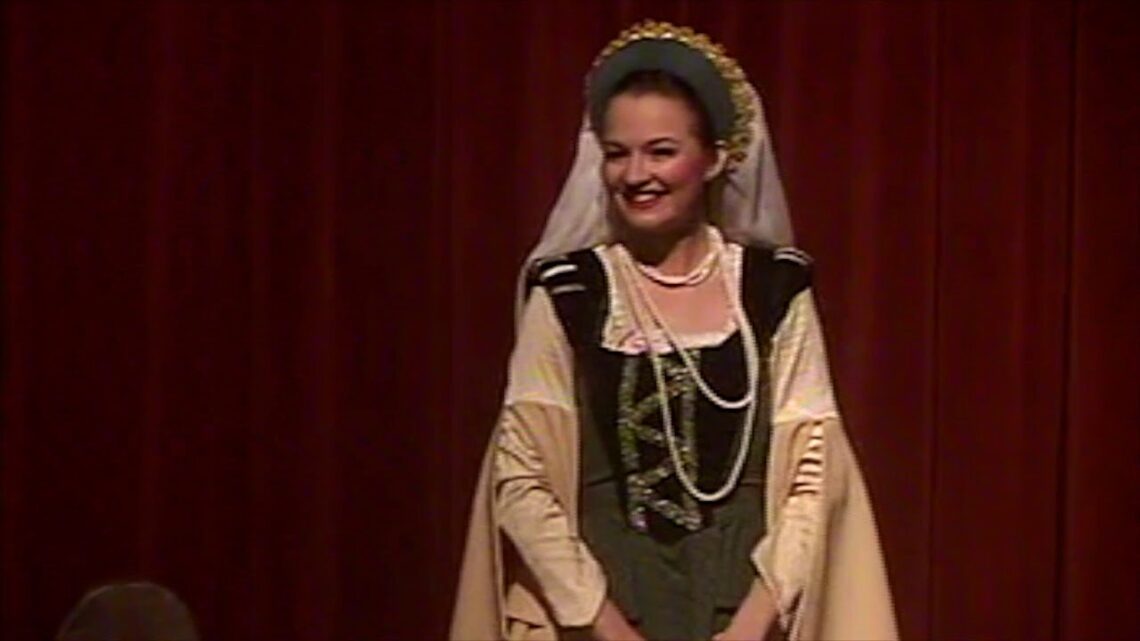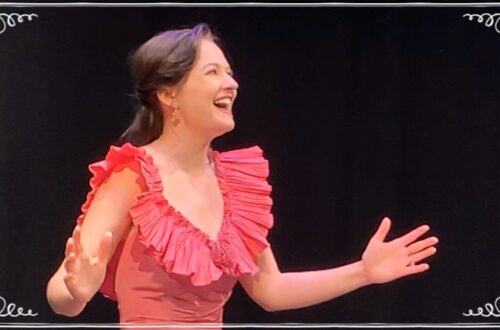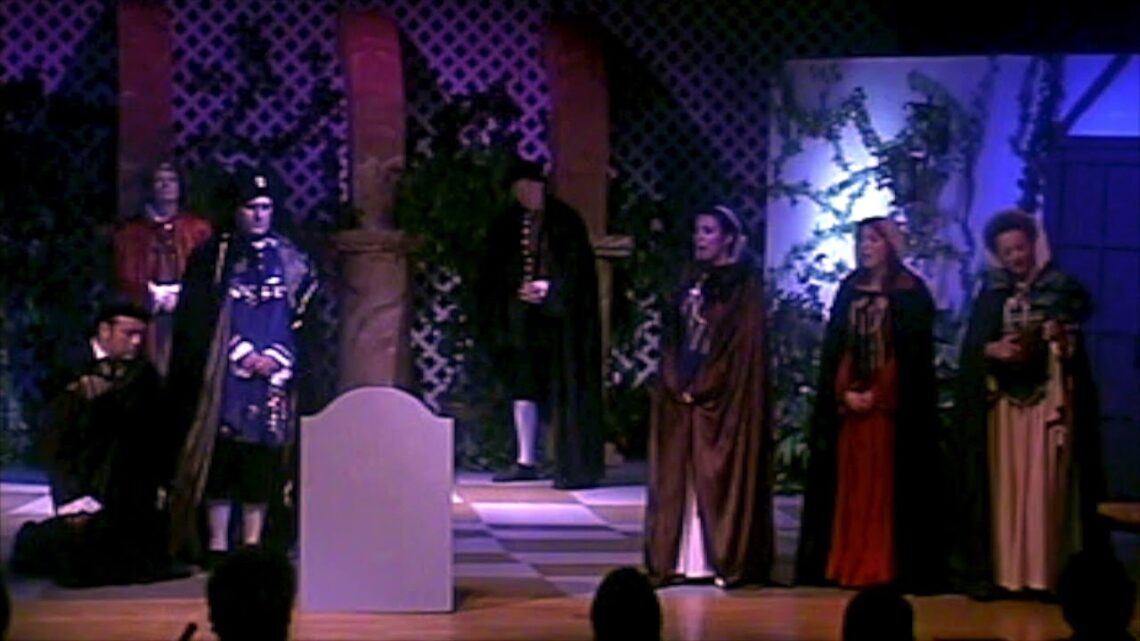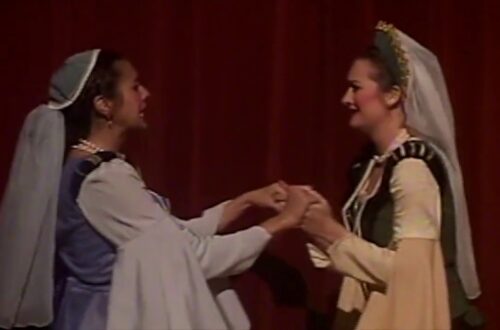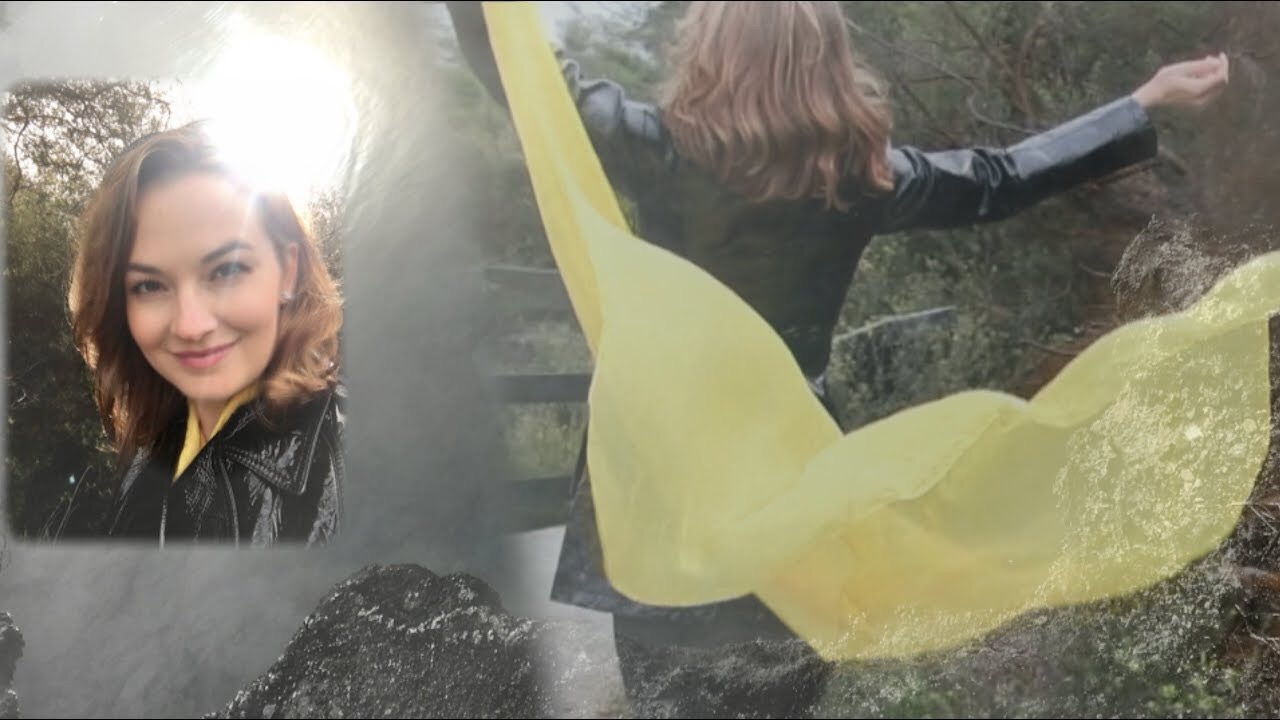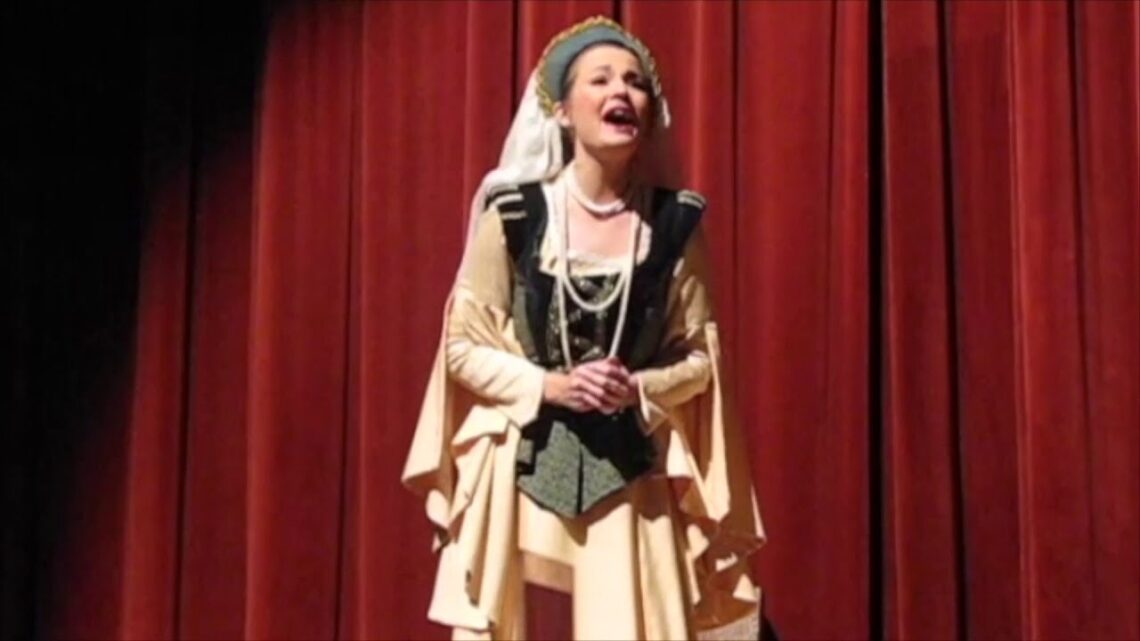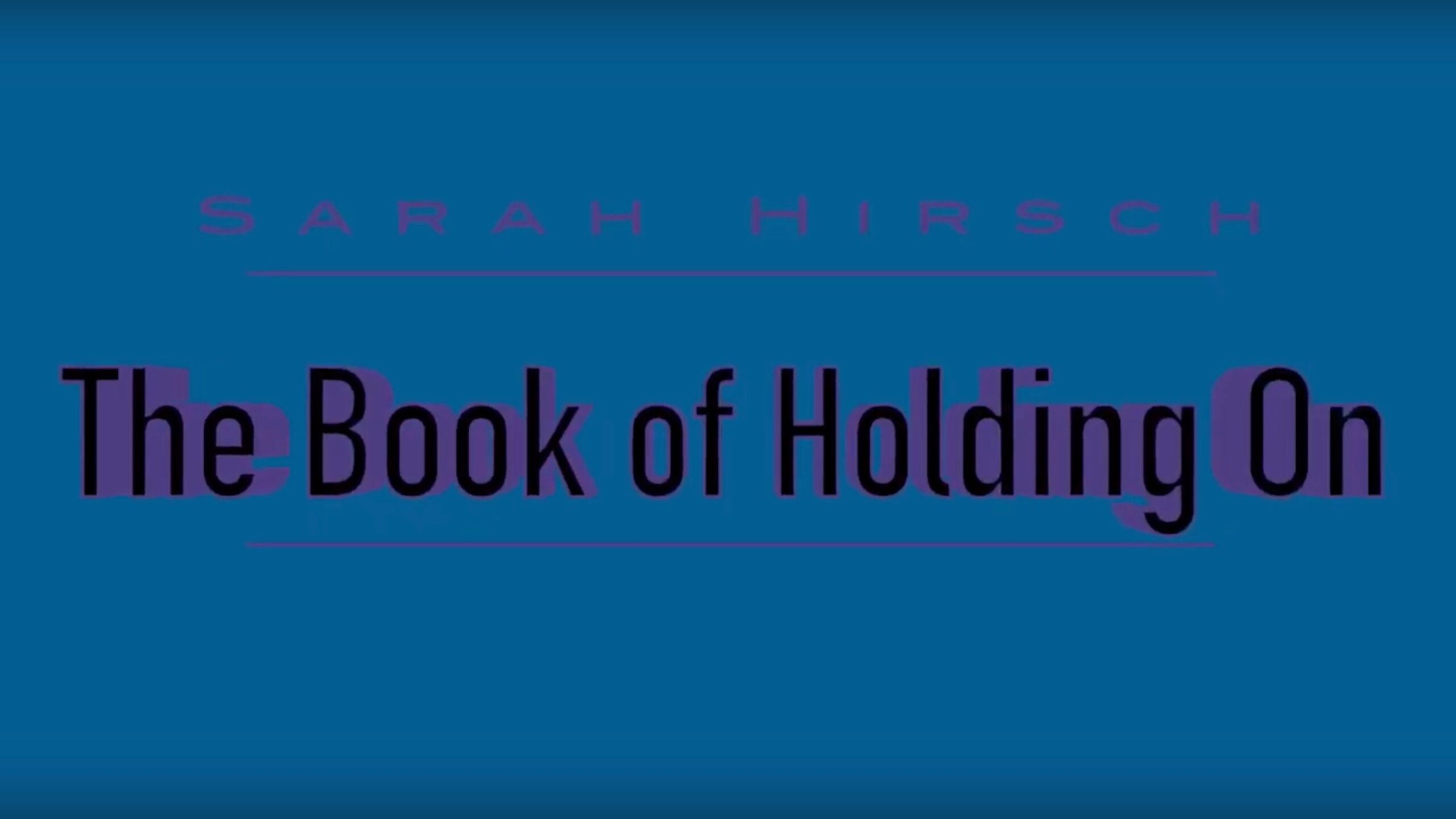-
Aveva na gallina capelluta
Today’s #WeeklyWednesday is another duet with my adopted sister, Renee Ulloa-McDonald ? This video is from a musical pre-show I designed for Coronado Playhouse’s production of Shakespeare’s “Much Ado About Nothing” and this piece is probably my favorite of our duets! “Aveva na gallina capelluta” was composed by Antonio Scandello (1517-1580). I was first exposed to this (and many other early and Renaissance pieces I’ve come to love) while living in Naples, Italy, and singing with an a capella choir (check out their lovely performance of this piece here). That’s another experience I’m so grateful for, and from which I have many happy memories ? “Much Ado About Nothing” was…
-
“Touch the Sky” (Merida from Brave)
Hey, friends! For today’s Halloween-themed #WeeklyWednesday, I hope you’ll check out last year’s “Touch the Sky” video! It was really fun to make! Last year was a particularly fun Halloween for me, as I think it’s the first year I’ve ever purchased a costume (rather than cobbling something together last minute) 😉 I thoroughly enjoyed being Merida, and NYC was absolutely gorgeous – weather, festivities, company… During lunch in the park, we decided to film a little bit, including the first verse of “Touch the Sky” – and I managed to record and edit the rest at home before and after the Greenwich Village Parade (fun/crazy!). I hope you enjoy this…
-
Vecchie letrose
Today’s #WeeklyWednesday is a duet with my adopted sister, Renee Ulloa-McDonald ? This video is from a musical pre-show I designed for Coronado Playhouse’s production of Shakespeare’s “Much Ado About Nothing” and it was so much fun performing these pieces with her!! “Vecchie letrose” was composed by Adrian Willaert and first published in 1545 in Canzone villanesche alla napolitana, no. 5. I’ve seen the text both in Italian and also in Neapolitan; our version is using the Italian text, and you can download the SATB arrangement in Italian for free here. Paul Archer has the text in Neapolitan with a nice translation into English, plus more info about the piece…
-
Accompaniment: Die Männer sind méchant! (Schubert)
Today’s #WeeklyWednesday is the accompaniment to a German lied with music by Franz Schubert and poetry by Johann Gabriel Seidl. If you’d like to learn more about this piece and see the poem translated into English, check out this site. FYI: I’m a singer, not an accompanist! I couldn’t find an accompaniment when preparing this piece a few years ago (still trying to decide whether I feel the recording I have of it is good enough to share ?) and needed something to practice with – so I made this track myself. I hope it helps you when preparing the piece – and if you’d like to download a copy…
-
My Fair Lady: Understanding Eliza’s Transformation Through Language
New York University, 2019. Hey, guys! For today’s #WeeklyWednesday, I decided to share a practice take I made of a research presentation for one of my courses at #NYU (it’s weird sometimes “performing” or talking alone in my apartment in front of a camera ? I think it went pretty well and definitely felt more natural in person!). I hope you enjoy hearing my questions and ideas about Eliza’s development throughout “My Fair Lady” from a sociolinguistics/linguistic anthropology lens – and that it gives you some good food for thought! Things here are going well – just much, much busier than I’d like (it’s not a sustainable pace right now!).…
-
Mandoline (Dupont/Verlaine)
Today’s #WeeklyWednesday is the accompaniment to the French song “Mandoline” – but you can also check out my performance of it here: Paul Verlaine’s poem has been set to music several times – mine is composed by Gabriel Dupont. You may be familiar with Fauré’s version; and I love Debussy’s (this recording by Diana Damrau is awesome!)! If you’d like to see his poem translated into English, this site does a nice job. FYI: I’m a singer, not an accompanist! I couldn’t find an accompaniment when preparing this piece and needed something to practice with – so I made this track myself. I hope it helps you when preparing the piece…
-
Life updates/NYU Graduate Recital – Nov 26!
-
It Was a Lover and His Lass
Today’s #WeeklyWednesday is a #Renaissance piece by Thomas Morley that was likely composed for the original production of Shakespeare’s comedy “As You Like It.” Two pages sing “It Was a Lover and His Lass” for Touchstone in Act 5, Scene 3. Shakespeare’s plays included a number of songs, but little information about the music used in his productions has survived. Some pieces were popular songs from the period (particularly the dances mentioned), others had lyrics written by Shakespeare set to an existing melody, and some tunes were likely original for each play. Referencing Ross W. Duffin’s excellent book on the topic (p. 221-223 of Shakespeare’s Songbook), this song is likely…
-
Pardon, Goddess of the Night
Today’s #WeeklyWednesday is my arrangement of Patrick Doyle’s lovely contemporary composition for Shakespeare’s lyrics from Act 5, Scene 3, of Much Ado About Nothing. I composed a tag for the ending, as Doyle’s version does not include the final lines of the text. In the original work, this song is performed by Claudio, but in our production at the Coronado Playhouse, music was performed by Beatrice (Danielle Orner), Margaret (Renee Ulloa-McDonald), and Ursula (me ?). This is one of the many songs in Shakespeare’s plays for which no original music survives (for excellent reading on this topic, check out Shakespeare’s Songbook by Ross W. Duffin. This song is discussed and…
-
O Sweet Oliver
Today’s #WeeklyWednesday is a #Renaissance piece from Shakespeare’s comedy As You Like It. The character Touchstone sings “O Sweet Oliver” in Act 3, Scene 3. Shakespeare’s plays included a number of songs, but little information about the music used in his productions has survived. Some pieces were popular songs from the period (particularly the dances mentioned), others had lyrics written by Shakespeare set to an existing melody (though the name of the melody often was not included), and some tunes were likely original for each play. When Shakespeare used a popular song, it often communicated an additional meaning – a joke or common reference that period audiences would have well-understood…
